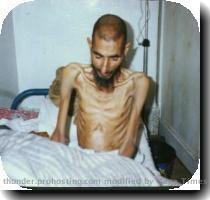TB study says US, global health officials too strict on flight rules for TB patients
By Mike Stobbe, APSunday, February 21, 2010
Study: Health rules on flying with TB too strict
ATLANTA — Provocative new research suggests international rules that bar potentially infectious tuberculosis patients from flying are too stringent and airline passengers are really at little risk from catching TB from a fellow traveler.
Global and U.S. health authorities also go too far in advising testing of passengers and crew on long flights when an infected flier is discovered, said the researcher, Dr. Ibrahim Abubakar, in a paper published in a British medical journal.
The paper is controversial. U.S. health officials disagree, and a prominent TB expert says the findings are based on paltry data and current guidelines are appropriate.
Abubakar chaired a European scientific panel that looked at tuberculosis and air travel. His paper, released Sunday, analyzes 13 earlier studies of 4,300 airline passengers from six countries. He concluded that only two studies offered convincing evidence of an infected passenger spreading the disease to others. He counted only 10 infections diagnosed in thousands of passengers who flew with infected travelers.
The paper mentions what may be the most famous incident of a TB-infected airline passenger: Andrew Speaker, a Georgia lawyer with a drug-resistant form of TB who ignored government advice and flew to and from Europe for his wedding and honeymoon in 2007. Hundreds of passengers who traveled with him were tested, and none was found to have tuberculosis, the Centers for Disease Control and Prevention has said.
Abubakar declined to discuss that case, although he does urge more caution when drug-resistant TB is involved, as was the case with Speaker. Even so, his paper suggests it wasn’t necessary to test the hundreds of passengers who were sitting around Speaker on two flights.
Abubakar said such testing is unnecessary unless there is evidence an infected passenger is contagious and has been infecting others. He argues that people with easily treatable tuberculosis who have been taking medicine at least two weeks should be able to board commercial flights.
“The consequences are greater” if a fellow passenger is infected with drug-resistant TB, said Abubakar, a researcher with the University of East Anglia in Britain, in a telephone interview.
His paper is being published in the March edition of The Lancet Infectious Diseases.
The United States is farther along than many other countries in eliminating TB, and U.S. health officials are aggressive about testing other passengers and taking steps to stop the potential spread of any new cases. “It’s very effective,” said Dr. Richard Chaisson, a John Hopkins University TB expert.
Chaisson sits on the editorial advisory board of The Lancet Infectious Diseases, but did not agree with the study’s findings and called them unconvincing. “I don’t think there’s a problem” with World Health Organization or U.S. guidelines.
Officials at the Centers for Disease Control and Prevention also disagreed with some facets of Abubakar’s argument. He said one important indicator of whether a TB patient is infectious is a positive result from a lab analysis of sputum. But CDC officials said patients with negative results can still be infectious.
“It’s always better to be safe than sorry,” said CDC Director Dr. Thomas Frieden.
On the Net:
The Lancet Infectious Diseases: www.thelancet.com/journals/laninf/issue/current
Tags: Atlanta, Diseases And Conditions, Drug Resistance, Geography, Georgia, Infectious Diseases, Lung Disease, Medical Research, North America, Occasions, Public Health, United States, Weddings
|
February 22, 2010: 7:14 am
“Health is wealth” is well known to all and everyone wants good health.So, Let us build a food habit discipline, keep pace with work, rest and exercise to Achieve good health, The ultimate wealth. |


The Health Dude